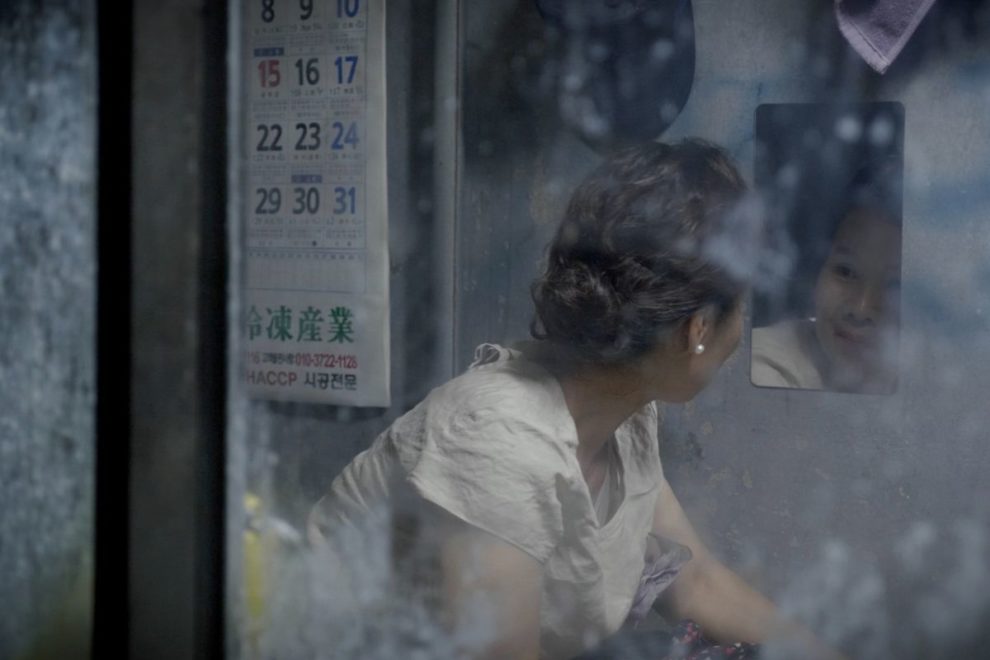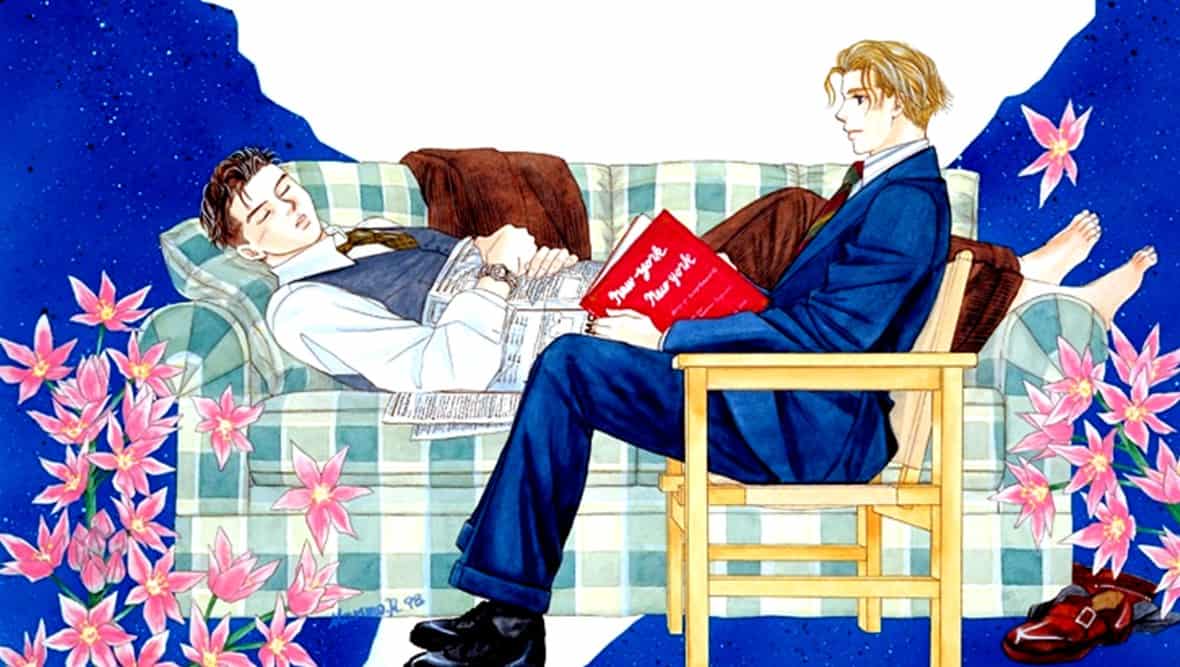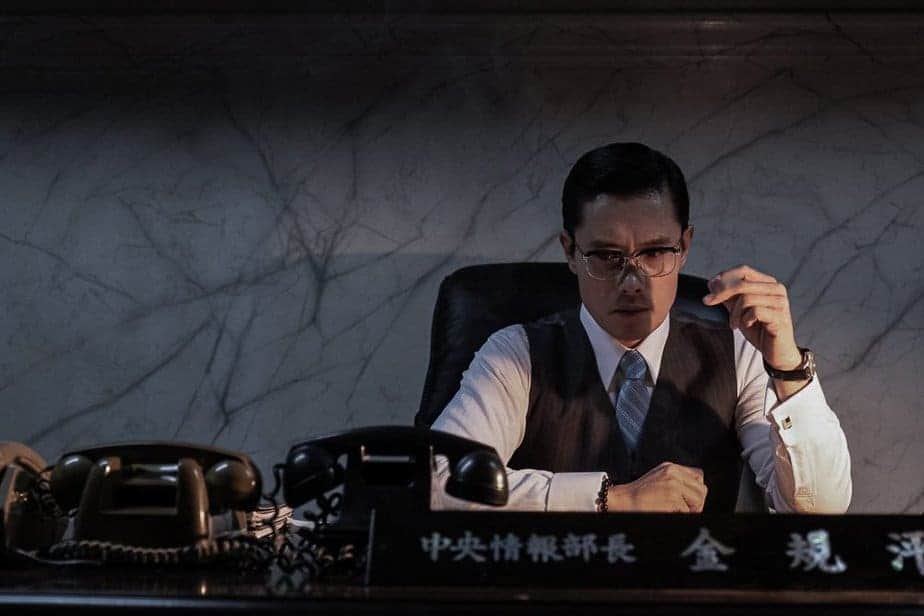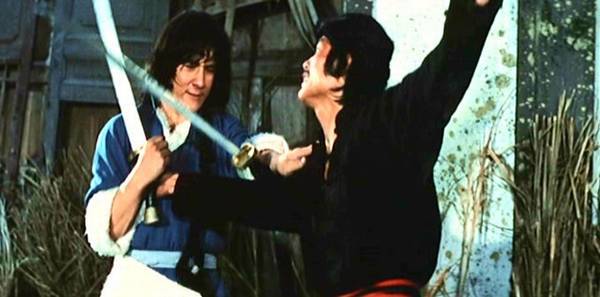When the #MeToo-movement became popular, much like the discussion about the pay gap between actors and actresses, for some it shed some light onto an issue which had actually been going on for quite some time. The failure to address and ultimately change the system which has been operating on inequality for such a long time as well as downright antiquated gender images, shows the stability of that hierarchy protected by economic and political agendas. However, the problem is still very much a part of our everyday lives, as director Kim Mi-jo noticed once more when she was taking a walk. She observed a man following a middle-aged woman through the streets and decided to follow the two people, suddenly struck by a vague sense of danger and the image of the woman who reminded her of her mother. The incident made her think about gender images in Korean society and the status of women in her home country, a contemplation which laid the foundation of her feature debut “Gull”, a story about these aspects and about a culture defined by looking away as well as a central character who is unable to do so.
“Gull” is Screening at Black Movie

For more than 30 years Obok (Jeong Ae-hwa), has been working as a vendor at a fish market while also taking care of her family, providing an education for her daughters. Her eldest one, In-ae (Go Seo-hee) is currently preparing her wedding ceremony together with her mother and father, relying on their financial support quite a lot. With this being a stressful time for her family, Obok often enjoys the company of the other vendors at the fish market and is more than happy to join them for a drink after work one day. However, the evening takes a nasty turn when Obok is raped by one of her colleagues.
Struggling to deal with the aftermath of the event, with the other vendors even blaming her for the rape and her husband completely oblivious to Obok being depressed and withdrawn, she finds herself on the verge of a breakdown when even her daughter seems unwilling to help her. As her attempts to confront the perpetrator and find witnesses for the rape lead nowhere, she becomes even more desperate.
With at times excruciating detail, “Gull” explores the new perception of a woman whose normality has been suspended by one act of violence. Supported by the magnificent and powerful performance by Jeong Ae-hwa, we follow her attempts to regain control while she is told “not to cause any unnecessary fuss” and to behave her age. The disruption of her life until that evening seems another facet of a system which empowers the perpetrator, but forgets about the victim, eventually punishing Obok for her efforts to make herself heard. Perhaps even more concerning is the development of a woman like the protagonist, from being practical and outgoing to becoming increasingly withdrawn and even isolating herself from her family out of shame.
However, director Kim Mi-jo, who also wrote the script, presents the extent of the aforementioned system which also influences the sphere of the family. Eventually the idea of behaving according to one's age is linked to the concept of conformism, a notion repeatedly highlighted in the various dialogues of Obok with her daughter and even her husband later on, who expresses some rather questionable thoughts about who is to blame for the rape according to him. Indeed, physicality, especially connected to age in the case of Obok seems to be a taboo topic, making the protagonist wanting to talk about even more of a stain in the eyes of society.
Aesthetically, “Gull” is defined by a semi-documentary-approach, which is quite familiar in many social dramas from Asia. Kim Mi-jo suggests to her viewer to follow her main character in her quest to be heard and noticed by the world around her, revealing repressive images of gender and how they eliminate social cohesion when it is most needed.
In the end, “Gull” is quite an impressive and thoughtful drama. Its formal approach to its subject and the powerful leading performance by Jeong Ae-hwa make Kim Mi-jo's first feature a though-provoking tale about a system whose differentiation between “victim” and “perpetrator” has clouded its way of treating others with empathy and dignity.














